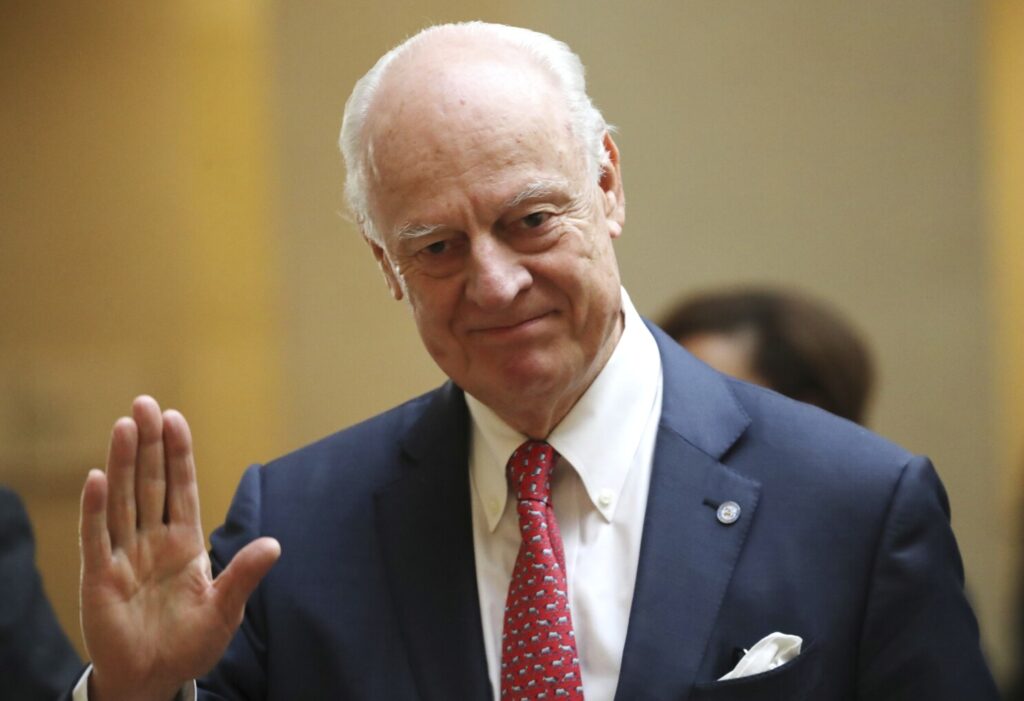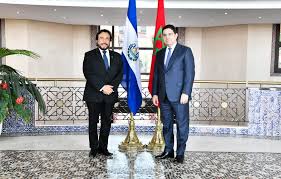
April 14, 2025 | New York
In a significant diplomatic development, UN Envoy Staffan de Mistura’s latest shift in approach toward the Western Sahara conflict is being seen by analysts as a definitive blow to Algeria’s long-standing agenda in the region. According to diplomatic sources, the UN mediator has begun steering away from past ambiguities and now openly supports a political solution grounded in realism — a move that echoes the Moroccan autonomy initiative and sidelines the separatist claims long backed by Algeria.
De Mistura, appointed as the UN Secretary-General’s Personal Envoy for Western Sahara, has reportedly grown increasingly frustrated with Algeria’s refusal to engage directly in the negotiation process, despite its clear role as a principal party in the decades-long dispute. His recent briefings to the Security Council and informal communications with member states highlight a recalibrated stance, one that places responsibility on all relevant actors — not just Morocco and the Polisario Front — to move the process forward.
“This shift represents a clear signal that the international community is no longer buying into Algeria’s narrative of being a ‘mere observer’,” said a Western diplomatic source at the UN. “Algeria’s obstructionism has been laid bare, and the envoy’s posture reflects that.”
Morocco’s autonomy plan, first introduced in 2007, has gained growing international support in recent years, with over 90 countries backing the proposal as a serious and credible basis for resolving the conflict. The United States, France, Spain, and several African and Arab nations have reiterated their support for the plan, which offers substantial self-governance to the Saharan population under Moroccan sovereignty.
By contrast, Algeria and the Polisario Front have remained entrenched in a maximalist position, pushing for a referendum on independence — a proposal that has been widely deemed impractical and obsolete by most observers and UN officials.
De Mistura’s new direction effectively aligns the UN process with the international consensus forming around Morocco’s autonomy proposal. Sources close to the matter suggest that the envoy has grown increasingly wary of the Polisario’s lack of flexibility and Algeria’s reluctance to assume accountability in a dispute it has heavily funded and politicized.
Observers say the shift in De Mistura’s posture also comes after repeated attempts to organize inclusive talks were blocked by Algeria’s insistence on conditions that many saw as counterproductive. His latest reports have omitted reference to a referendum, and instead emphasize “a realistic, pragmatic, and enduring political solution based on compromise” — language closely mirroring Security Council resolutions from recent years.
This diplomatic turn leaves Algeria increasingly isolated, with its decades-long narrative unraveling under the scrutiny of both regional dynamics and international diplomacy.
“The writing is on the wall,” said Dr. Karim El Haidar, a Maghreb affairs analyst. “The UN is no longer willing to indulge Algeria’s double game. De Mistura’s recalibrated approach is a diplomatic wake-up call.”
As the international tide shifts further in favor of Morocco’s autonomy initiative, Algeria’s leverage in the Western Sahara issue appears to be waning. With the UN envoy narrowing the scope for ambiguity, this could mark a turning point in a conflict that has outlived its Cold War origins — and a final blow to Algeria’s waning influence on the matter.





